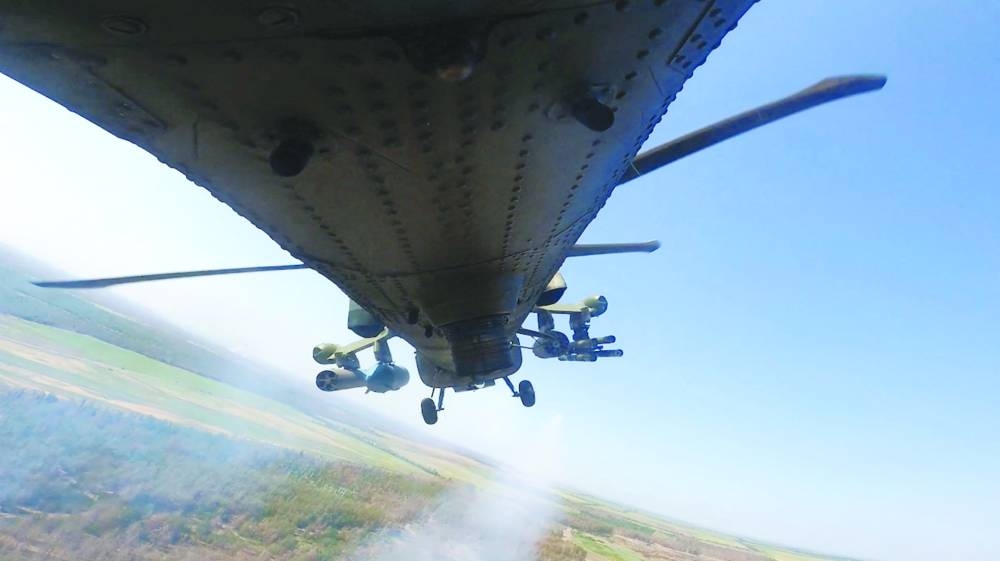Moscow yesterday mounted a “counter-terror operation” in three border regions adjoining Ukraine to halt Kyiv’s advance deeper into Russia and warned that the fighting endangered a nuclear power plant.
Ukrainian units stormed into Russia’s western Kursk region on Tuesday morning in a shock attack, the largest and most successful cross-border offensive by Kyiv of the two-and-a-half year conflict.
Its troops have advanced several kilometres and Russia’s army has rushed in reserves and extra equipment — though neither side has given precise details on the forces they have committed.
Russia’s nuclear agency yesterday warned the Ukrainian attack posed a “direct threat” to the nearby Kursk nuclear power station.
At least 16,000 civilians requested state assistance to leave their homes in Russian border areas, where emergency aid has been ferried in, and extra trains to the capital Moscow have been put on for people fleeing.
“The war has come to us,” one woman from the border zone told AFP at a Moscow train station on Friday, declining to give her name.
Russia’s army confirmed yesterday it will still fighting the Ukrainian incursion.
It said Kyiv initially crossed the border with around 1,000 troops, around 20 armoured vehicles and 11 tanks though it claimed yesterday to have destroyed five times that much military hardware so far.
Russia’s national anti-terrorism committee said late Friday it was starting “counter-terror operations in the Belgorod, Bryansk and Kursk regions...in order to ensure the safety of citizens and suppress the threat of terrorist acts being carried out by the enemy’s sabotage groups.”
Security forces and the military are given sweeping emergency powers during “counter-terror” operations.
Movement is restricted, vehicles can be seized, phone calls can be monitored, areas are declared no-go zones, checkpoints introduced, and security is beefed up at key infrastructure sites.
The anti-terrorism committee said Ukraine had mounted an “unprecedented attempt to destabilise the situation in a number of regions of our country.”
Russia on Friday appeared to hit back, launching a missile strike on a supermarket in the east Ukrainian town of Kostyantynivka that killed at least 14 people. Three were killed in the northeastern Kharkiv region yesterday, local officials said.
Ukraine also said it needed to evacuate 20,000 people from the Sumy region, just across the border from Kursk. Neither side has provided details on the extent of the incursion.
Russia’s defence ministry yesterday said it had hit some Ukrainian positions as far as 10km from the border. It also reported hitting Ukrainian troops in areas 30km apart — an indication as to the breadth, as well as depth of Ukraine’s advance.
The US-based Institute for the Study of War said yesterday it believed Ukrainian forces had pierced around 13km into Russian territory.
Belarus, Russia’s close ally, yesterday ordered military reinforcements — ground troops, air units, air defence and rocket systems — to be deployed closer to its border with Ukraine in response to Kyiv’s incursion, the defence ministry in Minsk said.
Moscow issued a nuclear warning over the fate of the Kursk nuclear power plant, under 50km from the combat zone, a day after the head of the International Atomic Energy Agency called for “maximum restraint”.
“The actions of the Ukrainian army pose a direct threat” to the Kursk plant in western Russia, state news agencies cited Rosatom as saying.
“At the moment there is a real danger of strikes and provocations by the Ukrainian army,” it added.
Ukraine’s leaders have remained tight-lipped on the operation.
The United States, Kyiv’s closest ally, said it was not informed of the plans in advance.
But President Volodymyr Zelensky has appeared to tout his troops’ early successes.

A Russian military helicopter fires following Ukraine’s incursion into the border area in the Kursk region, Russia, in this still image from video released yesterday. (Reuters)
